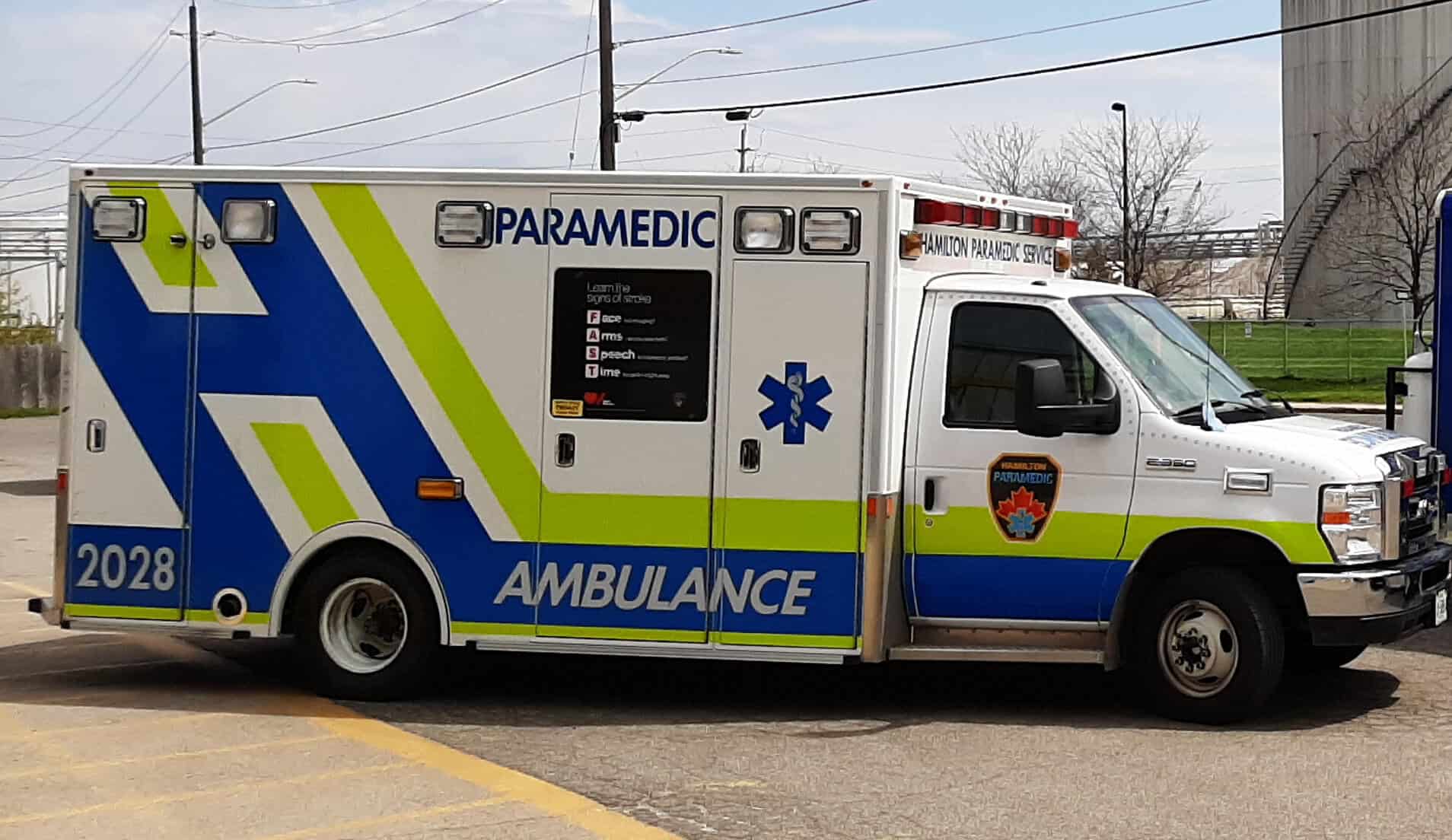Hamilton paramedics want public to know when to call 911 for a life-threatening emergency
Published December 17, 2021 at 6:53 pm

Fewer than 10 per cent of 911 calls in Hamilton dispatched as a life-threatening emergency response actually need that level of treatment, says the city’s paramedic service.
Friday (Dec. 17), Hamilton Paramedic Services (HPS) launched a public awareness campaign to encourage residents to call an ambulance only in an emergency situation. Their push for people to seek other health services for less urgent needs comes as the city heads into the holiday season while dealing with an anticipated surge in COVID-19 cases involving the Omicron variant.
Time is of the essence in a medical emergency, but Hamilton paramedics said that their response times are getting longer due to an increase in call volumes and pressures on the hospital system. They respond to an average of 266 dispatch calls a day, but under 10 per cent of calls dispatched as a life-threatening emergency response result in someone being transported to hospital as a life-threatening emergency.
“As your Hamilton paramedics strive to do their best in the face of broad health system pressures and rising call volumes we ask that the public not dial 9-1-1 for non-emergency medical situations that can be best handled by use of Ontario Telehealth, your family physician, or a visit to an urgent care centre or walk-in clinic,” stated HPS Chief Michael Sanderson. “If it is a life-threatening emergency don’t hesitate. Dial 9-1-1 and we will be there. If it is not an emergency — 9-1-1 is not the answer. Make the right call.”
Options for quick and appropriate care include:
- Consulting your primary care provider. A listing of family doctors who accepting new patients is available at hamiltonfht.ca.
- Going to a walk-in/urgent care clinic. Hamilton has two urgent care centres, at 690 Main St. W. and at 2757 King St. E.
- Speaking with a pharmacist for questions about general health or use of medications.
- Contacting Telehealth Ontario for toll-free advice: 1-866-797-0000
When to call 9-1-1
Residents should call 9-1-1 when experiencing indicators of a life-threatening emergency such as chest pain, difficulty breathing, or signs of a stroke. Residents are also reminded to call an ambulance for other medical emergencies such as:
- Chest pain or chest tightness
- Sudden numbness or paralysis of the face, arm or leg
- Difficulty breathing
- Serious accidents or trauma
- Extreme pain
- Large burns
- Severe bleeding
- Unconsciousness






